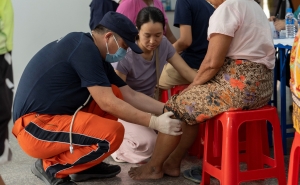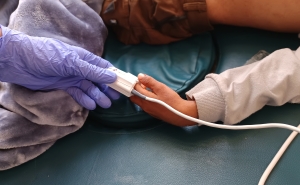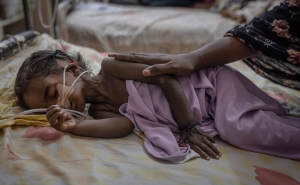Lack of Refugee-Centered Mental Health Care in the EU Highlighted by Ukrainian Refugee Crisis

In a recent article, Diana Rayes, a PhD student in the Department of International Health at the Johns Hopkins Bloomberg School of Public Health, and a 2022 Pulitzer Center Reporting Fellow, discusses the issue of refugee mental health needs and access to care in host countries in light of the ongoing migration caused by the crisis in Ukraine.
The article was published by New Lines Institute for Strategy and Policy on July 13, 2022.
The current Russian invasion of Ukraine has produced millions of Ukrainian refugees who are fleeing to various European countries. Rayes explains how as a result of their abrupt displacement, thousands of Ukrainians have newly onset mental health conditions such as post-traumatic stress disorder, depression, and anxiety. These refugees are now seeking mental health support in countries across the European Union. Many EU countries, however, were unprepared for the sudden increase in mental health demands resulting in a shortage of mental health professionals available to accommodate growing needs.
The need for comprehensive, refugee-centered healthcare is vital to ensure both long- and short-term refugee integration into host countries, says Rayes. She adds that creating a mental health care system catered to addressing the specific needs of refugees, through outreach services in communities, partnering with trusted local organizations, collaborating with international agencies, and utilizing nontraditional interventions such as digital and online treatment programs, can help to effectively provide essential care to vulnerable refugee populations.





